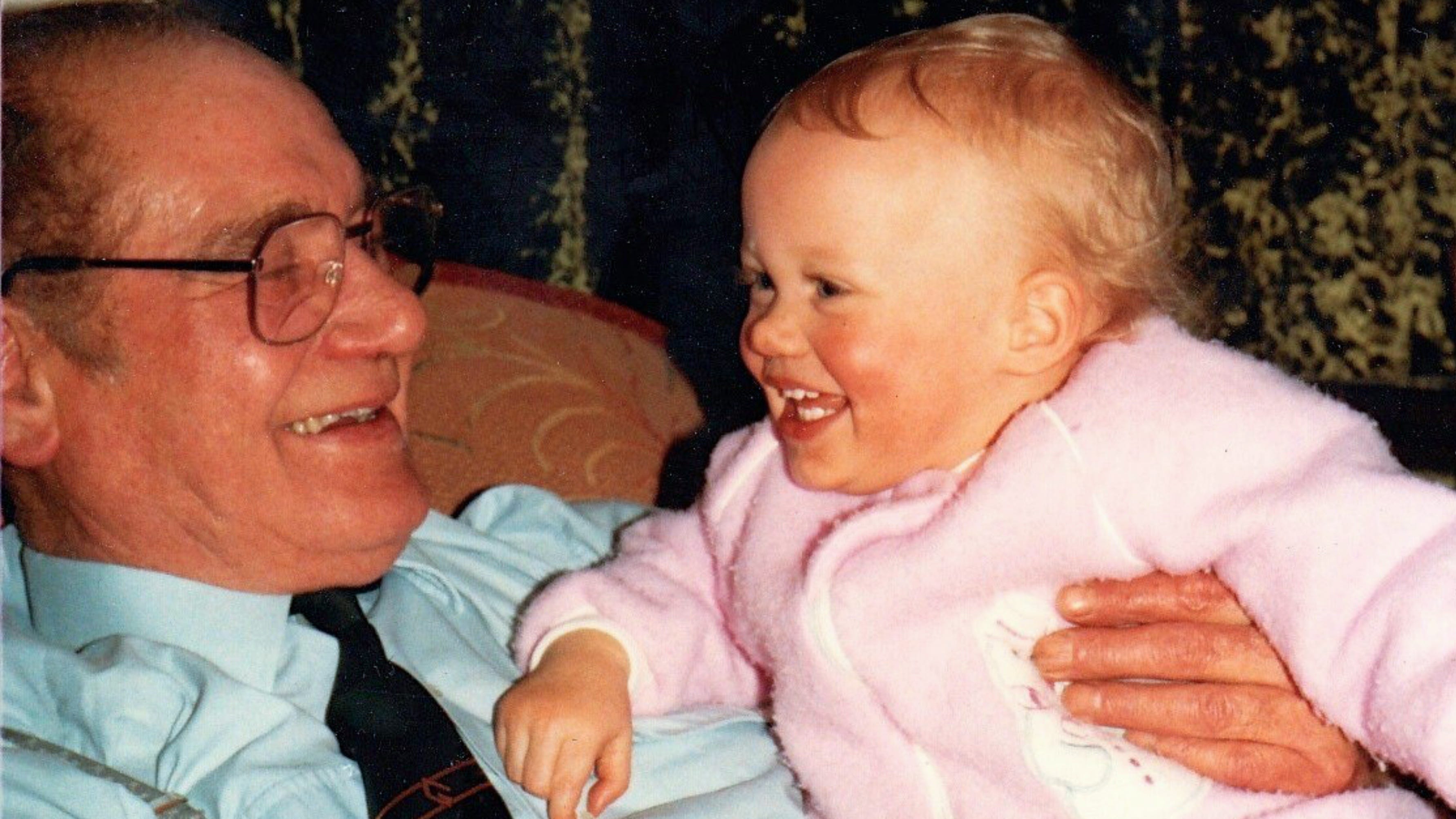My dad died 32 years ago today. I was 32 then. Which means I’ve now lived as many years without him as I had with him. That symmetry strikes me today—a quiet reminder of what endures, and what we carry forward.
He was most alive when doing what he loved best: running a supermarket like it was a corner shop. From the time I first started infant school, I would spend time by his side in the store. My mum had been desperate to get out of the house and go back to work, and her thinking was that the young women who worked for Dad would keep an eye on me—and she was right. By the time I was 13, I was stocking shelves and organizing the warehouse. Summers, Christmas, Easter—I grew up in that shop.
What made him remarkable was the way he made the store less about groceries and more about people. He didn’t hide in the office; he lived on the shop floor. He loved being on the checkout, talking with customers, making children laugh. He kept a pocket full of two-pence pieces so kids could ride the machine by the tills, giving their mums a moment of peace.
His warmth lit people up. I’ll never forget a frail, elderly woman who came into the store one afternoon. Dad didn’t remember her name, but he had a trick: “Hello, Mrs. Woman,” he said, and she glowed. She straightened her back, her cheeks flushed with color. In a few seconds, he’d given her back a little of herself.
He grew up in a hard house, under a harder man. His father was an abusive alcoholic who kept a mistress across town and beat his wife. When my dad was fifteen, he tried to defend her. His father beat him and threw him out. He walked twenty miles that night to his aunt’s house, begging her to take him in. She agreed—on the condition that he got taken on at the local pit later that day, with him handing over his unopened pay packet at the end of the week in return for an allowance. When he later married my mum, he embraced her family as his own. He chose, every day, to make a softer house than the one he had known.
That hardness could have shaped him, but he chose otherwise. That’s who he was. He would often hire waifs and strays—young people from difficult homes and challenging situations, who found in him a father figure. Maybe because of his own beginnings, he had a soft spot for kids carrying the same kind of weight. He gave them what he’d once needed himself: fairness, patience, a chance—never asking anyone to do what he wouldn’t. He led by rolling up his sleeves.
After my mum died, the store became his whole life. And then, at 63, when his supermarket chain merged with a competitor, he was pushed into early retirement. For him, losing the shop was like losing his identity. He poured himself instead into visiting his three sons and five grandchildren. They still tell their “Grandad stories” today.
A couple of years later, he began to feel unwell but hid his symptoms. He finally admitted it when he was babysitting my daughter—blood in his urine had scared him. I went with him to the doctor. The diagnosis was kidney cancer. At first, they thought it was localized; surgery might remove it. But once they opened him up, they saw it had spread. He was given two weeks to live and was transferred to Ashgate Hospice.
To be admitted, he had to accept that he was terminally ill. It hit him hard, but it also meant there was no pretense, no false hope. We could simply live the days we had. And the days stretched: two weeks became two years. His care was exceptional, his will unshaken.
It was the hardest season of my life, but also the richest. I learned that honesty and love can make even borrowed time feel like a blessing. Those years gave me the freedom to tell him often how much I loved him. That was his final gift to me: to love without leaving doubt.
I see him in myself—the way I try to make people feel heard and seen, the way I’ve stayed connected to family and friends across oceans, the way I still believe that kindness is strength. He was my number one fan, the warm blanket I could always wrap myself in, proof that love doesn’t fray with time.
If I could sit with him once more, it would be in the shop, watching him in his element—making strangers feel like family, reminding everyone that they mattered.
I’ve now lived as long without him as I did with him. What stays with me is his lesson—that a kind word can outlast grief, and a warm heart can be a legacy.



Beautiful, Robert.